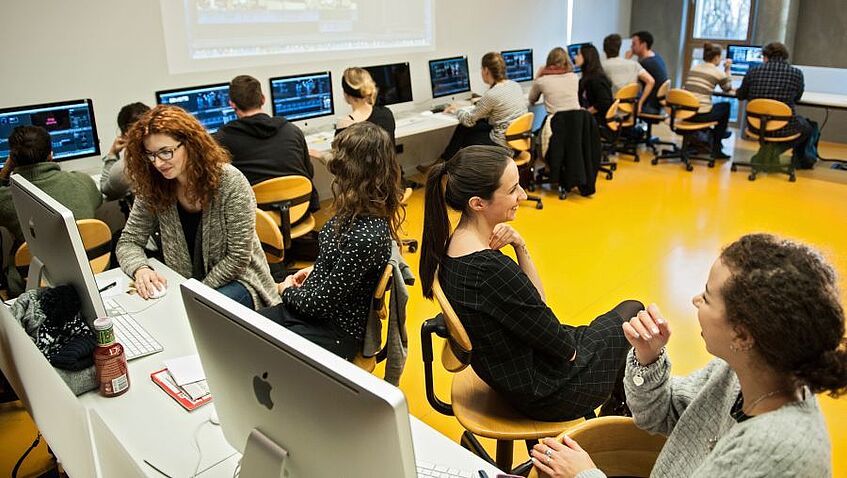Mass Media and Communication Science (Bachelor)

© Universität Wien / Barbara Mair
The bachelor’s programme in Mass Media and Communication Science aims at equipping students with the key qualifications necessary for pursuing a career in central occupational fields. In addition, it prepares and trains students for continuing academic studies. Through academic reflection, students acquire the necessary knowledge for public communication and practices of communication.
Bachelor of Arts
Degree Programme Code: 033 641
6 semesters / 180 ECTS credits (including 60 ECTS credits of extension curricula)
Language: German
Facts & Figures
- Students: n.a.
- Graduates in the last academic year: n.a.
- Number of semesters needed for graduation (median): n.a.
Data updated on: 03.12.2024
Attention
Instruction Language German
Please note that the instruction language of this programme is German. To start the degree programme, you need to hold a certificate of German proficiency on C1 level.
Admission Procedure
Study programme
The bachelor’s programme in Mass Media and Communication Science consists of an Introductory and Orientation Period (STEOP) which is subdivided into two modules, as well as compulsory modules. The compulsory modules focus on the methods and theories of mass media and communication science, as well as societal communication. Moreover, they deal with research practice, the special areas of mass media and communication science and the practical applications of societal communication. To successfully complete the programme, students have to write a bachelor’s thesis.
Five concepts
which you will deal with during your studies:
- Multimedia journalism
- Public relations
- Communication ethics
- Media economics
- Market research
... and many more.
Overview of the programme structure & topics
Here you find the current offer of courses for this programme to gain better insight into the topics and structure. For more information please click on the respective level.
After Graduation
Students acquire skills and competences that are essential for communication-oriented professions in the following fields of practice:
- journalism (press, radio, television, multimedia)
- public relations
- advertisement
- market and public opinion research
- media and communication research.
Graduates' Perspective on the Degree Programme
Graduates ...
- say that this degree programme receives the grade: 2.5 (good)
- rate the level of difficulty as: 2.9 (appropriate)
→ These results are basd on feedback from 492 graduates.
*You can find further assessments of the degree programme from its graduates’ perspective in the graduate survey of the bachelor’s programme in Journalism and Communication Studies graduation survey (in German).
Graduates ...
- find employment within 2 months after graduation on average.
- earn an average of € 2,661 (women) and € 2,894 (men) gross per month within three years after graduation.
- work full time at a percentage of 74% (women) and 75% (men) within three years after graduation.
*You can find further information on career entry and career paths in the tracking of graduates "Journalism and Communication Studies".

